Science: A Parent’s Passion
I LOVE science‼ My son likes science. This is the main area of handcrafting Sean’s education that has focused on the passions of someone in his family besides him. (My husband’s and my other passions are shared by Sean.) I am a scientist, and I know a lot of science. Even though he doesn’t have my strong passion for science, my son is good at science. He has had the benefit of a good science education. I am a passionate proponent of people learning how the natural and physical world works. I do not think of science as an ancillary subject, and I believe strongly that the treatment by our academic institutions of science as ancillary has led to a lot of the problems our world is facing right now.

I want to come clean with you; I did something I caution other parents against doing. I am using my middle school science textbook for high school. I made sure Astronomy and Earth Science was far enough along so that I could use it with Sean this year. Let me start by telling you, it is a middle school text. I am beefing it up by adding more math to it, having him write regular lab reports, and having him read relevant periodicals, books, and on-line articles to go along with the weekly theory, but I am not significantly changing my text. I am calling this course Applied Chemistry and Physics, which it is, on Sean’s high school transcript to make it easier for the colleges where he applies to recognize the coursework this class entails.
It might make me sound a bit like a control freak (I am not btw), but here are my reasons for using my text even if it is a middle school text. My choices of texts and courses are severely limited when it comes to those that are sold to the homeschool community because:
- I will not use a course that excludes or misrepresents scientific facts, principles, models, or theories that are considered core ideas in the field. I am a scientist. I am not going to play silly games about what constitutes good science. I care too much about it. It pains me to admit it, but most of the science materials developed specifically for the homeschool community play this game of omission and/or misrepresentation with many of the core established understandings of science. When I see this it is a signal to me that the person responsible for the material does not have the same passion I do for teaching people how the natural and physical world works, and I just cannot use their stuff.
- I find many public school texts available for homeschoolers to be dry, arcane, and full of advanced topics without enough grounding in the foundational fundamentals.
- Many texts have an inadequate or thoughtless pairing of labs with the theory.
- Often with public school texts, there is just too much material to get through in a year, with too much emphasis on facts that could easily be looked up using your phone (which is what we all do!).
- Most public school texts assume the material is going to be taught by a teacher, so the fit isn’t easy if you are not prepared to teach from it. And even I would rather not put together a yearlong series of lectures for just one student from someone else’s text. That is one reason my texts are written to the student as a really complete series of lecture notes. (That is how I think of my texts.) I consider each chapter in my text to be one (occasionally two) lecture’s worth of material written in a conversational manner. It is also why the Teacher’s Guide has a Text Review. Those would be my lecture notes if I were teaching from my book. It is much easier for me, the author, to write the lecture notes, than for parents who are using my texts.
This does make me sound like a control freak about science doesn’t it?!? LOL!
I have my reasons for using my text, but even so, a year ago it would have made me nervous to use this course for high school. Then two unrelated events happened that made me take a harder look at the science many consider high school level.
- I signed Sean up for a science co-op class to take along with this one. The class met the University of California a to g requirement for a high school science class. The class only met once a month! The labs did not seem to be carefully paired with the theory. They felt more like a hodgepodge of laboratory techniques crammed together. I concluded that if this class met the UC System requirements, then we were doing above and beyond that with my middle school courses.
- Early in the 2014/2015 school year, I was contacted by a parent who is using RSO Biology 2. They had recently moved to New York State. Here is her statement from a review she wrote about RSO Biology 2 on Amazon, “I’m now using this book to teach a science co-op in NY. According to the White Plains school district, the labs in this book can be used to qualify for the biology/living environment Regents Exam.” In a separate email, I learned that to graduate from high school in New York State you must take certain classes and then pass the Regent’s Exam for those classes. After reviewing the material in RSO Biology 2, the White Plains School District told the homeschooling parent that as long as they saved the records from the biology labs this course would satisfy the high school requirement for a year of biology/living environment. The irony was the parent was not trying to get them to approve this as a high school level course. Her daughter was in middle school. When she moved to the White Plains school district they wanted to look at the materials she was using before giving their approval that she could homeschool her daughter! She shared the topics and labs from RSO Biology 2 to get them to approve this book for use in middle school. Instead the school district approved the book for high school (and middle school). Her daughter and the other students at the co-op are getting credit for both, I guess. there was also a comment in a similar vein from a different reviewer on Amazon. This is a quote from their comment, “P.S. I suppose I should mention that before this program, he scored in the 69th percentile on science (7.3 GE) according to a national, standardized test for fifth-graders. This year he scored in the 90th percentile in science (13+ GE) on the same national, standardized test given to sixth-graders. What does that mean? It means he’s got mastery of the content more than anything.”
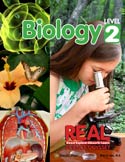
When RSO Biology 2 first came out, people contacted me about using it for high school. My standard response was that it was not written to be a high school level text and there were things that were left out that I would have included in a high school level course. For example, I left out the electron transport chain during the discussion of photosynthesis. I left out a probability exercise showing the number of different combinations of chromosomes that can be made during meiosis and then recombined at fertilization for two diploid organisms with 3 chromosomes in their karyotype. (I did write this though. My publisher wisely had me remove it. It really was advanced even for most high school students. 😉 ) There would be more chemistry woven into the biology. Next school year Sean will study chemistry. I will have to make sure he gets the important biochemistry then.
I spent some time thinking (mildly obsessing my husband and publisher would say, LOL!) about the situation with the Regent’s Exam, and I think I know why the school district felt RSO Biology 2 qualifies as a high school level course. Good science programs are moving away from a focus on memorizing facts and to a focus on science practices. In most cases, the basic concepts and foundational fundamentals are the same for a high school and middle school text. Maybe middle school courses do not check every single box for the more complicated concepts, but there is no way for middle school and high school students to practice most of the more advanced concepts anyway. Very few texts have a strong focus on the application and practice of the science concepts being taught. RSO Biology 2 (and Astronomy and Earth Science 2) have that as a primary focus. There is a focus in these courses on learning the foundational fundamentals and then applying them. A focus on the application and practice of science concepts and foundational fundamentals translates to a focus on using the scientific method in a meaningful way, the way scientists actually use it. It is one of the reasons I have students make their own slides in RSO Biology 2. If you buy prepared slides, you will get a better view of the specimen than if you prepare your own slides. I guarantee it! But if you do that you will never become good at making slides, and studying science should not just be about looking at what others have done. Studying science should include you interacting with the natural and physical world to come to a better, more complete understanding of how it works.
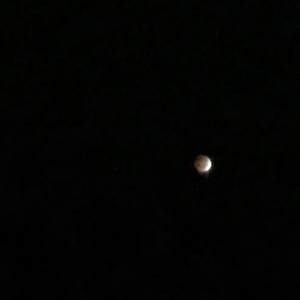
I would have used Astronomy and Earth Science 2 even without these two things happening, but I would have obsessed more, making sure I covered the specific facts I am leaving out of the middle school text that I would not leave out in a high school text. I have a confession to make about last year too. I used my biology text as a high school level biology course in 8th grade. Sean wanted to do biology again in 8th grade. The sequence for Sean’s science during middle school was 5th grade: middle school biology, 6th grade: physics, 7th grade: chemistry, 8th grade: high school biology. He hasn’t had astronomy or earth science since 2nd grade.
So far this has been a great year of science. The sequence of topics in the text is astronomy, geology, hydrology, the atmosphere and meteorology, and environmental science. Sean has only gotten through the astronomy portion. Sean is loving science this year. Astronomy has really captured his interest and imagination. I have to be careful when Sean looks at the supplementary videos and articles, because he can lose a day that way. Not that I mind, it is just that I have to make sure there is nothing pressing when he starts science!
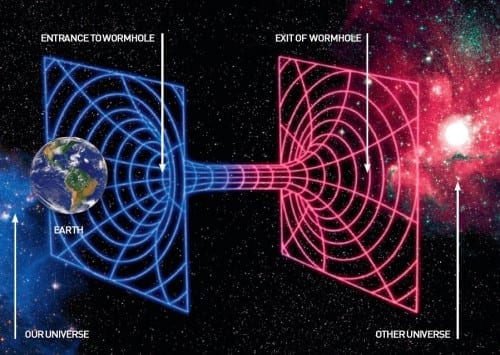
In addition to using my course, Sean has read the following:
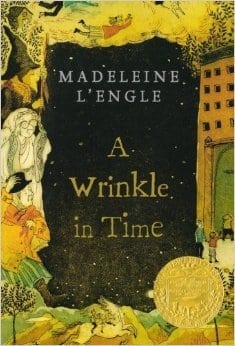
- A Wrinkle in Time by Madeleine L’Engle – The reading level was a little young for him, but I coupled the reading with a discussion of Einstein’s Theories and how there could be “wrinkles” in time. (A topic that isn’t too young for him or anyone else!) Sean loved this. In addition to his studies, he has taken the time to learn MUCH‼ more than I know about parallel universe theories!
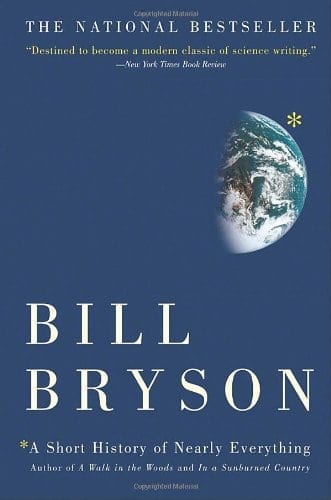
- A Short History of Nearly Everything by Bill Bryson – This book along with my course, I feel, took Astronomy and Earth Science 2 up to the high school level! Sean has loved parts of this book and been lukewarm about others. I should probably state here, my son will enter college with a level of science that will enable him to do well in his science courses. Sean knows more science than most adults, but most adults do not have much science knowledge. Unless Sean changes his mind, Sean’s focus in high school science will not be at the AP science level. If your student’s focus is at the AP science level, this is not a rigorous enough course for you. But because of the focus on the foundational fundamentals, Sean is able to make connections across the science disciplines that are deep and nuanced
.
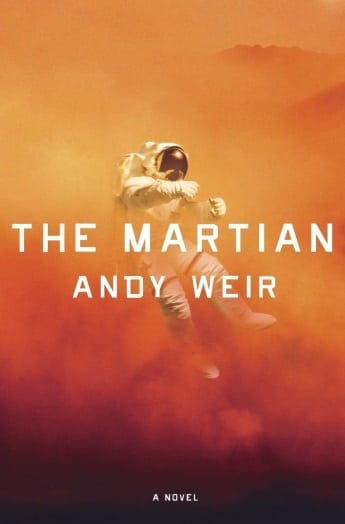
- The Martian by Andy Weir – I read this book in two days. It took Sean a week. This book is science, science fiction, action, and a nail biter. Each day that Sean read this, I had him email me a writing technique he noticed and liked that the author had used, I also had him email me 1 science fact from the book.
I know many of you want to get your hands on this text NOW!! I am peddling as fast as I can, I promise!
Check out our post on teaching computer science in home schooling high school here.
